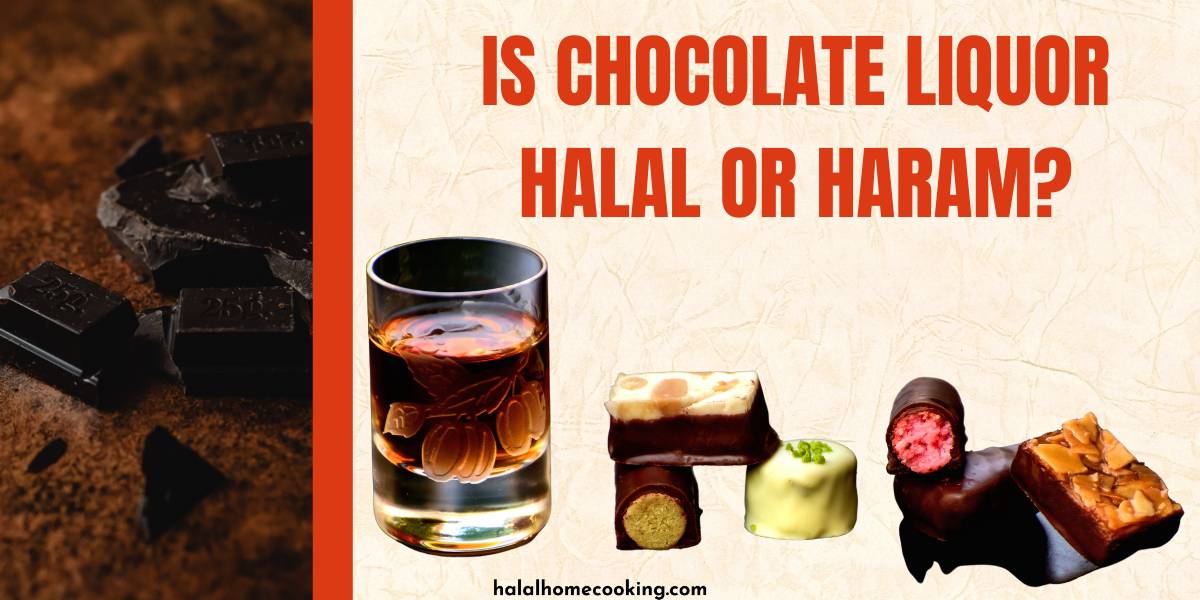If you’re a chocolate lover who happens to follow a halal lifestyle, you may have questioned whether or not chocolate liquor is halal. Chocolate liquor is an essential ingredient in many chocolate products, including dark and milk chocolate. It is derived from the cocoa bean and forms the basis for the rich taste and texture that we all love in our favorite chocolates.
Companies like Lindt are well-known for their high-quality chocolate products, but it’s important to understand how they produce their chocolates before determining if they are halal-friendly. Chocolate liquor is made by grinding cocoa beans into a paste called cocoa mass. This mass contains both cocoa solids and cocoa butter.
The concern arises due to the word “liquor” in its name, leading some to believe that it might contain alcohol and therefore be haram (forbidden). However, it’s crucial to note that while “liquor” typically refers to an alcoholic beverage, this term has a different meaning when applied to chocolate.
There is no alcohol present in the traditional form of chocolate liquor; rather, it consists of pure ground cacao beans. The confusion often stems from the fact that some manufacturers add ethyl alcohol during processing for various purposes such as preserving or extracting flavors. However, this addition does not make the final product alcoholic nor render it haram according to certain interpretations of Islamic dietary laws.
To further complicate matters surrounding halal certification for chocolate products: While pure cocoa liquor itself can be considered halal because it doesn’t come from an animal source or contain any haram ingredients such as gelatin or vanilla extract derived from alcohol sources – certain brands may use additional ingredients like cream or liqueur which could potentially render them haram.
It’s worth noting that determining whether a particular brand’s chocolate products are halal depends on various factors such as how they procure their ingredients and what additives they may include.
In conclusion, while pure unsweetened dark chocolate made from cocoa beans is generally considered halal, it’s important to be vigilant and check the ingredients list and manufacturing practices of specific chocolate brands before making a purchase.
Is Chocolate Liquor Halal in Sunni?
In Sunni Islam, chocolate liquor may be considered halal depending on its ingredients and the process of its production. Chocolate liquor is made from cocoa beans that are ground into a paste or liquid form. While dark chocolate liquor does not contain any alcohol and is generally considered halal, some milk chocolates may include an ingredient called cocoa butter which can potentially contain small amounts of alcohol. It is recommended for individuals following halal dietary restrictions to check the ingredient list of chocolate products, as some brands or flavors may use alcoholic derivatives in their production such as chocolate liqueur or vanilla extract.
Is Chocolate Liquor Halal in Shia?
Chocolate liquor is halal in Shia Islam. Chocolate liquor, also known as cocoa liquor or cocoa mass, is made from ground and roasted cocoa beans. It does not contain any alcohol and is therefore permissible to consume. However, it should be noted that certain chocolate products may contain additional ingredients that could affect their halal status. For example, if chocolate liquor is mixed with alcohol or any other haram ingredient such as gelatin or vanilla extract sourced from an animal source, then the resulting chocolate product would be considered haram. To ensure that a specific brand or product of chocolate liquor is halal according to Shia beliefs, it is important to check the list of ingredients for any prohibited substances and consult reliable sources for verification.
Is Chocolate Liquor Halal in Hanafi?
Chocolate liquor, also known as cocoa liquor or cocoa mass, is the liquid form of chocolate that is obtained from grinding the roasted and shelled cocoa beans. In the Hanafi school of thought, chocolate liquor is considered halal as long as it does not contain any haram ingredients like alcohol or animal-derived products. This means that dark chocolate made from pure cocoa beans without any added alcohol would be considered halal in Hanafi jurisprudence. However, milk chocolate may not be considered halal if it contains milk powder derived from non-halal sources. It’s important to check the ingredient list and ensure that the product does not contain any haram ingredients to determine its halal status for consumption according to the Hanafi school of thought.

